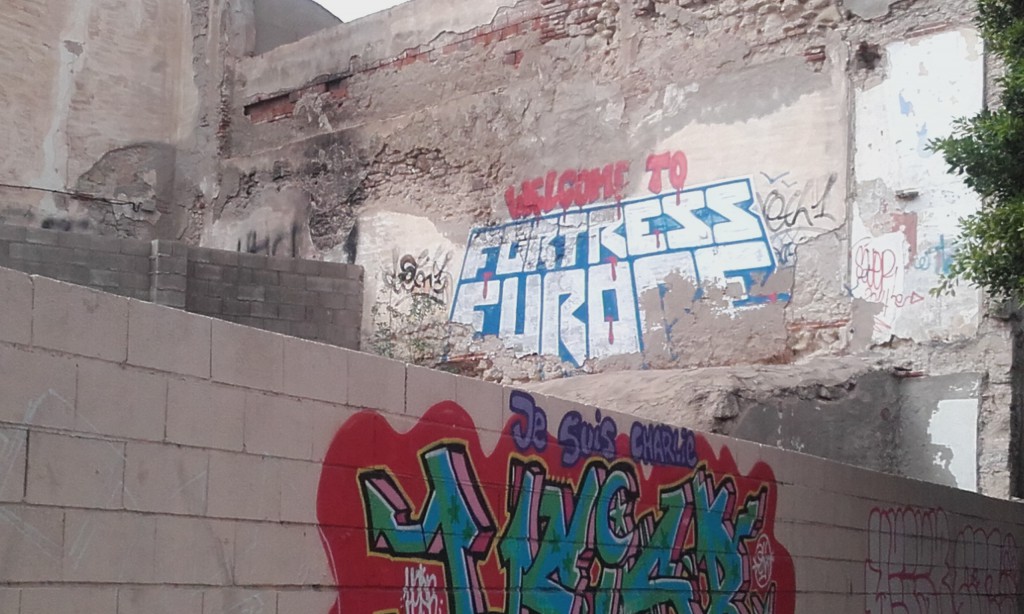Melilla: Europe in Africa
By Ella Daniels
Afropean’s Ella Daniels reports from the ground in Melilla, a Spanish outpost in Morocco, where the racialized reality shows the stark difference in treatment of Africans at the hands of Europeans on their own continent.

In September of 2016 I found myself in Melilla.
In previous weeks, I’d asked anyone and everyone what they knew of the place, scavenging for any piece of information to calm my nerves. What I heard wasn’t great, but I took it all with more than a pinch of salt – nobody I asked had ever actually been there. They simply regurgitated what appeared to be common knowledge: “Ugly”, “boring” and “dangerous” were the most common things I heard.
These adjectives were closely and quickly followed by “lots of policemen, soldiers and Moroccans”. Depending on the political perspective of the person, Moroccans were either “people from Morocco”, or “Moros” (a pejorative term). If the latter was used it was always accompanied with a turned-up nose or screwed up face.
Melilla is an autonomous Spanish city positioned on the North coast of Africa. It is very small, only 12 km across, and framed by a huge and treacherous border fence, kindly funded by the EU, to prevent people, mainly sub-Saharan Africans, from reaching Europe. It is most famous for said fence. One of the most striking images of Melilla is of African boys perched atop the fence, barefoot and dusty, whilst in the foreground, two Spaniards indulge in a sport that embodies wealth, power, privilege and traditionalism in a luscious, emerald green golf course.
Melilla is touted as a successful mix of four cultures: Catholic Spain, Islamic Morocco, European Judaism and a smaller group of Indian Hindus. I was born and raised in East London. I know what a mixture of cultures looks, sounds and smells like, and a mixture of cultures was not what I found in Melilla.
It’s fair and true to say that when it comes to race, Spain is behind England in many ways. Although I bemoan British attitudes towards people with different backgrounds, I was knocked back by what I experienced in Andalusia. Melilla then somewhat blew those experiences, and that reaction, out of the water.



